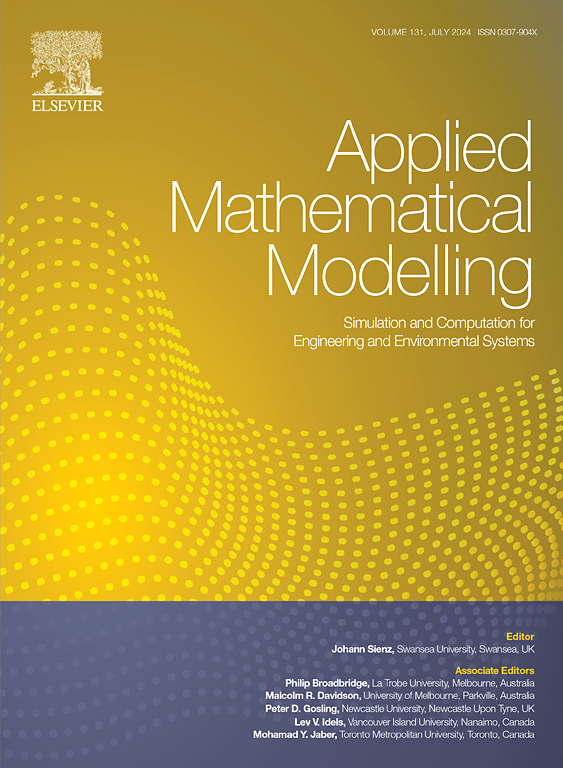Gradient-free score-based sampling methods with ensembles
IF 4.4
2区 工程技术
Q1 ENGINEERING, MULTIDISCIPLINARY
引用次数: 0
Abstract
Recent developments in generative modeling have utilized score-based methods coupled with stochastic differential equations to sample from complex probability distributions. However, these and other performant sampling methods generally require gradients of the target probability distribution, which can be unavailable or computationally prohibitive in many scientific and engineering applications. Here, we introduce ensembles within score-based sampling methods to develop gradient-free approximate sampling techniques that leverage the collective dynamics of particle ensembles to compute approximate reverse diffusion drifts. We introduce the underlying methodology, emphasizing its relationship with generative diffusion models and the previously introduced Föllmer sampler. We demonstrate the efficacy of the ensemble strategies through various examples, ranging from low- to medium-dimensionality sampling problems, including multi-modal and highly non-Gaussian probability distributions, and provide comparisons to traditional methods like the No-U-Turn Sampler. Additionally, we showcase these strategies in the context of a high-dimensional Bayesian inversion problem within the geophysical sciences. Our findings highlight the potential of ensemble strategies for modeling complex probability distributions in situations where gradients are unavailable.
基于集成的无梯度分数抽样方法
生成建模的最新发展是利用基于分数的方法结合随机微分方程从复杂的概率分布中抽样。然而,这些和其他性能采样方法通常需要目标概率分布的梯度,这在许多科学和工程应用中是不可用的或计算上禁止的。在这里,我们在基于分数的采样方法中引入集成来开发无梯度近似采样技术,该技术利用粒子集成的集体动力学来计算近似的反向扩散漂移。我们介绍了基本的方法,强调其与生成扩散模型和先前介绍的Föllmer采样器的关系。我们通过各种例子证明了集成策略的有效性,从低维到中维采样问题,包括多模态和高度非高斯概率分布,并提供了与传统方法(如No-U-Turn Sampler)的比较。此外,我们在地球物理科学中的高维贝叶斯反演问题的背景下展示了这些策略。我们的发现突出了集成策略在梯度不可用的情况下建模复杂概率分布的潜力。
本文章由计算机程序翻译,如有差异,请以英文原文为准。
求助全文
约1分钟内获得全文
求助全文
来源期刊

Applied Mathematical Modelling
数学-工程:综合
CiteScore
9.80
自引率
8.00%
发文量
508
审稿时长
43 days
期刊介绍:
Applied Mathematical Modelling focuses on research related to the mathematical modelling of engineering and environmental processes, manufacturing, and industrial systems. A significant emerging area of research activity involves multiphysics processes, and contributions in this area are particularly encouraged.
This influential publication covers a wide spectrum of subjects including heat transfer, fluid mechanics, CFD, and transport phenomena; solid mechanics and mechanics of metals; electromagnets and MHD; reliability modelling and system optimization; finite volume, finite element, and boundary element procedures; modelling of inventory, industrial, manufacturing and logistics systems for viable decision making; civil engineering systems and structures; mineral and energy resources; relevant software engineering issues associated with CAD and CAE; and materials and metallurgical engineering.
Applied Mathematical Modelling is primarily interested in papers developing increased insights into real-world problems through novel mathematical modelling, novel applications or a combination of these. Papers employing existing numerical techniques must demonstrate sufficient novelty in the solution of practical problems. Papers on fuzzy logic in decision-making or purely financial mathematics are normally not considered. Research on fractional differential equations, bifurcation, and numerical methods needs to include practical examples. Population dynamics must solve realistic scenarios. Papers in the area of logistics and business modelling should demonstrate meaningful managerial insight. Submissions with no real-world application will not be considered.
 求助内容:
求助内容: 应助结果提醒方式:
应助结果提醒方式:


